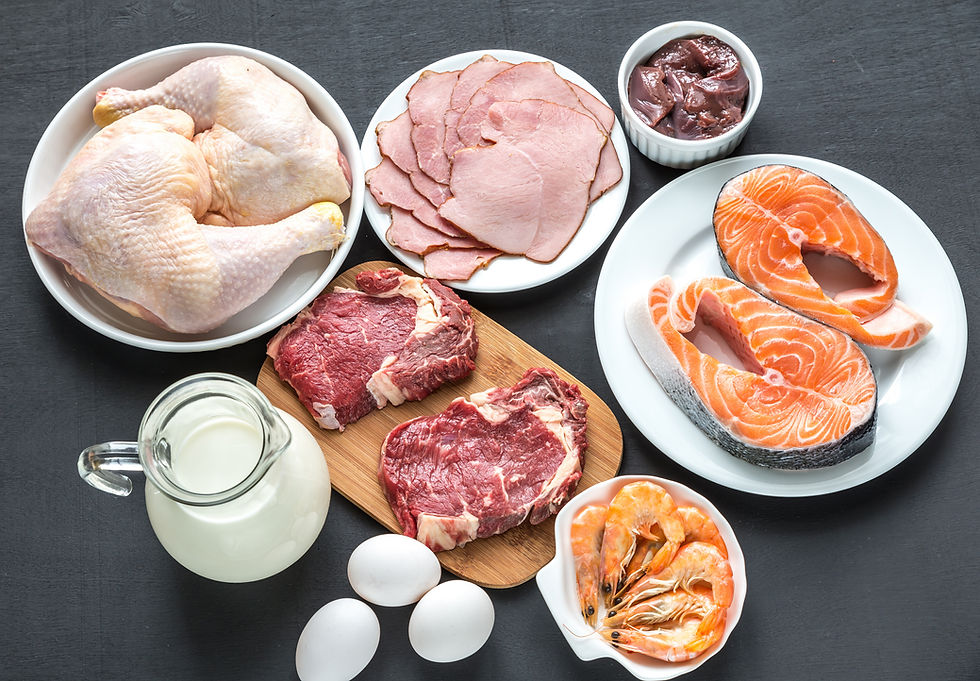The Importance of Protein
- Sarah Friesema
- Aug 28, 2023
- 2 min read
Updated: Sep 17, 2023

The smallest changes can make the biggest impact when it comes to our health and protein intake is no exception.
The Recommended Dietary Allowance (RDA) is .8g/kg of body weight. It is important to consider that this is the minimal amount required to meet basic nutrient needs. Your body uses protein for, like, everything. These guidelines are thought to be about 50% below optimal intake requirements.
Here are important considerations about protein:
Protein is involved in essentially all aspects of bodily function.
Excluding water and fat, the body is made up almost entirely of protein.
Protein is the main component of muscles, bones, organs, skin, and nails.
Excluding water, muscles are composed of about 80% protein.
When you digest protein, it is broken down into amino acids and absorbed.
Protein has an impact on metabolism and weight regulating activity in the body.
Protein is considered the macronutrient that leaves you the most satiated. Hunger is driven by a hormone produced in your stomach (ghrelin), signaling the brain that it is time to eat, and protein is linked to reducing the production of ghrelin.
A study in overweight adolescent girls found that eating a high-protein breakfast reduced cravings and late-night snacking. Cravings are different from hunger - a craving is the brain asking for a ‘reward’.
Protein has a thermic effect of food (TEF) of 20-35%
The thermic effect of food (TEF) is simply the increase in metabolism after consuming a meal while your body breaks that food down, digests and converts to energy. All foods have a thermic effect.
The increase in metabolic rate is temporary post meal consumption and minimal, but worth mention.
Increased protein intake may result in increased calories burned.
Carbohydrates have a TEF somewhere between 10-15% and fat somewhere between 0-10% depending on the type of fat.
Protein is hard to store as fat in the body. The body processes protein differently from carbohydrates and fat.
One study found that protein is stored as body fat with roughly 66% efficiency, while carbohydrates store with 80% efficiency and fats at 96% efficiency.
Protein intake can help battle age-related muscle loss.
PROTEIN AND DIETARY INTAKE:
Note: for nutritional advice and guidance, you should always speak to your doctor or a registered dietician.
The RDA indicates .8 g/kg, which is what we need to merely exist. Nutritional guidelines suggest a daily intake of 1.4 - 2.2 grams of protein per kilogram. The intake targets will be individualized and based on considerations like:
Individual goals
The type and quality of protein
Level of activity and type of exercise/activity
As a percentage of daily caloric intake, guidelines suggest calories from protein to be approximately 25-30%
Most individuals take in approximately 15% of calories from protein sources, which is adequate
Optimal intake amounts will vary based on considerations like:
Individual goals
Type and quality of protein
Level of activity and type of exercise/activity
While not everyone needs to increase protein intake, those looking to gain lean muscle mass, lose fat, lose weight, and improve overall metabolic function could benefit.

Comentários